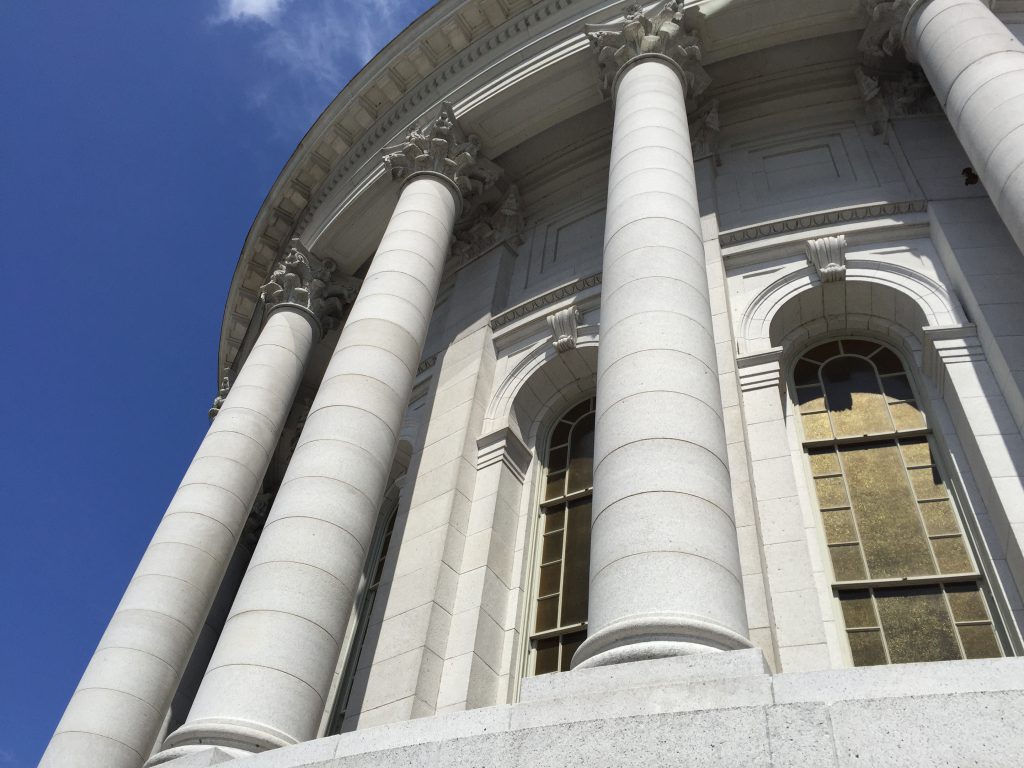Study Committee Will Consider Future of UW System
Declining enrollment and fiscal constraints among the issues being considered.
A study committee made up of lawmakers and members of the public will spend the next few months discussing the future of the Universities of Wisconsin and solutions for ongoing concerns, which appeared to be wide ranging during the panel’s first meeting on Thursday.
The group will provide legislative recommendations when it wraps up its work late this year. It comes after a legislative session that was marked by a showdown over diversity, equity and inclusion, controversy over free speech on campuses as well as the financial future of the UW system.
Committee chair Rep. Amanda Nedweski (R-Pleasant Prairie) noted during the meeting that the UW system faces challenges that include declining enrollment on many campuses along with fiscal constraints at individual institutions and at the system level. She said the committee would be a place to openly, honestly and respectfully discuss the issues in a public setting, even though conversations may be “intense” and “uncomfortable” at times.
“We all are here because we share the goal of taking action that will support the function of the UW system as an effective economic driver in our state going forward,” Nedweski said.
The committee is made up of four state lawmakers — including Nedweski, Sen. Cory Tomczyk (R-Mosinee), Rep. Alex Joers (D-Middleton) and Sen. Chris Larson (D-Milwaukee) — as well as 14 members of the public, who have an array of stakes in and ties to the UW system. It is planning to meet four other times between now and November.
Bob Atwell, a former UW regent who resigned in June, said the challenges that the UW System faces aren’t unique but are part of broader trends across the United States. He noted a few concerns, including the demographics of the UW System as well as the closures of two-year campuses.
Atwell said that while on the board he wasn’t sure if there was a real plan when it came to closing two-year campuses, but they were closing one by one nevertheless. In recent years, more and more two-year campuses, including UW-Platteville’s Richland campus, UW-Milwaukee’s Washington County campus and UW-Oshkosh’s Fond du Lac campus, have closed.
“We have an opportunity to take a step back, look, and instead of letting life happen to us and being left with decisions that appear to be sort of bad and worse, I’d love to see us stake out a bold creative confident vision for the future of the UW system to serve the state for the long term,” Atwell said.
The viability and funding of UW campuses were a repeated concern for committee members.
Shauna Froelich, an associate professor of communication law at UW-Green Bay, said that she is a big proponent of the “Wisconsin Idea,” the guiding philosophy that the resources of the UW System should be made available to people across the state, students and nonstudents alike. She loves teaching, she said, but has noticed over the last year an “increasing fear among faculty around deficits and around the uncertainty of the two years and four years.”
“There was a growing fear throughout the entire academic year, and what that would look like was ‘What email are we going to get next? What’s the next, you know, penny that’s going to drop here in the system?’”
Froelich mentioned that the cost of tuition is also a top concern for her. “It should not fall on the backs of students to increase loan use,” she said.
UW-La Crosse Provost and Vice Chancellor of Academic Affairs Betsy Morgan said the “precipitous drop” in funding is extraordinary and had a direct impact on the retention of high quality faculty and staff.
Peter Kies, a member of the UW Foundation Board of Directors, said that he is discouraged by the UW system becoming a “punching bag” and concerned that it isn’t being set up for the next 10 or 50 years.
“I do believe this is the single greatest economic engine in the state,” Kies said. He called for every UW institution to identify a mission and to be set up with the resources and a flexible governance model they need to be successful.
The UW system does not have the authority to take on debt on its own, and Ananth Seshadri, chair of the economics department at UW-Madison, said that should change.
“We are the only major research university that does not have bonding authority,” Seshadri said. “Can we get to a place where the Legislature is willing to give us that freedom so that we can build on it?” He said the Madison campus could have built an engineering and a chemistry building 15 years ago if it had that authority. A new engineering building is a project that only recently got the greenlight from the Legislature after negotiations over DEI.
Scott Beightol, a former UW regent, said he also would like to see bonding authority, at least for the research institutions at UW-Madison and UW-Milwaukee. He also said that the UW system needs additional funding from the state, but that won’t necessarily come without more efficiency.
“We’re going to have to convince the Legislature that if we show that we can do better with efficiency, we can increase state support and do better for our state,” Beightol said. “I think we have to be bold and we have to show the Legislature that this is what can be done and that they need to fund the University.”
Study committee meets for first time to consider future of the University of Wisconsin System was originally published by Wisconsin Examiner.




















